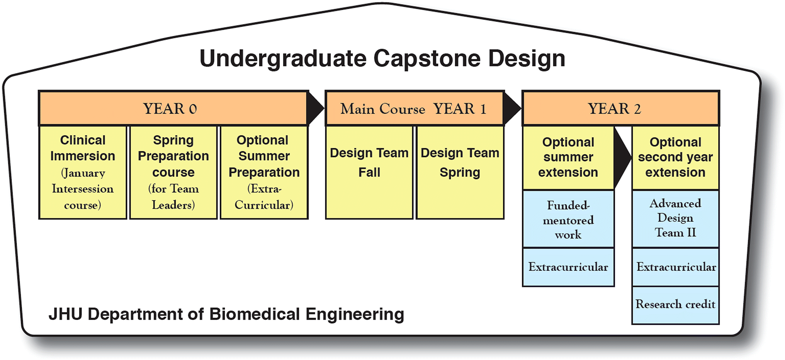Curricular Advancement of Biomedical Engineering Undergraduate Design Projects Beyond 1 Year: A Pilot Study
3. Manbachi A, Logsdon EA, Yazdi Y, Durr NJ
Annals of Biomedical Engineering, 48, 2020
[Journal Link]
Abstract
A year-long design project is a typical requirement for an undergraduate engineering degree. However, the abbreviated, two-semester format limits most projects from reaching appropriate maturity for obtaining intellectual property (IP) protection, external funding, and/or peer-reviewed publications. The traditional model may be associated with some dissatisfaction with the abrupt ending of the work, as projects are often just completing their initial proof-of-concept testing after 1 year. This study reports the results of a pilot experiment that allowed such design projects to extend through a second year. We investigated three different mechanisms for continuation: research credits, a second-year curricular course (Advanced Design Teams), and extracurricular support. Students in this program continued to engage with an advisory board of clinicians, engineers, and other professionals, many of whom had assisted with the project during the first year. We investigated whether continuing the projects in a curricular fashion may provide a better avenue for productivity than extracurricular mechanisms. Based on the results of this pilot study, our department has formalized a curriculum to support teams beyond the first year, in which continuing students from the first-year teams can apply to continue their projects for credit toward their degrees.
